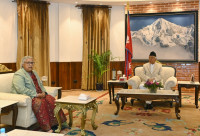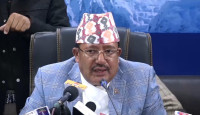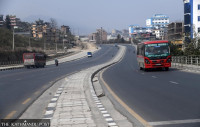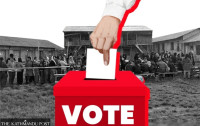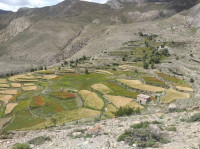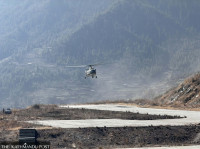National
Fault lines in ruling party exposed as Oli, Dahal spar over Venezuela
Venezuela rarely figured in Nepal’s foreign policy, let alone the domestic political discourse But all of that changed last month after a co-chairman of the ruling party issued a strong statement on the country.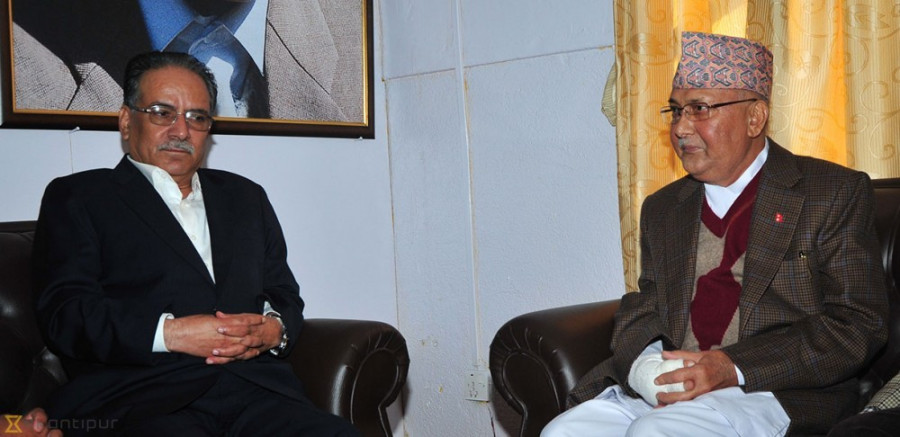
Tika R Pradhan & Anil Giri
Venezuela rarely figured in Nepal’s foreign policy, let alone the domestic political discourse. But all of that changed last month after a co-chairman of the ruling party issued a strong statement on the country.
Since then, the Latin American nation, which is in the middle of a power struggle, has driven a wedge between two top leaders of the ruling party, exposing the political fault lines in the Nepal Communist Party (NCP) that is struggling to complete its formal unification process.
“The Venezuela issue was purely political and should have been discussed from the theoretical point of view,” said Ghanashyam Bhusal, a standing committee member of the ruling party. “But the top leaders have taken this to a personal level.”
It all started on January 25. NCP Co-chair Pushpa Kamal Dahal issued a statement—not only siding with the embattled regime of Nicolas Maduro but also denouncing the United States for what he called “interference” and “imperialist move” in the Latin American nation as the superpower recognised Juan Guaido as president.
When the statement came, Prime Minister KP Sharma Oli, another co-chair of the ruling party, was wrapping up his meeting in Davos, Switzerland.
Since then, there has been a series of statements on Venezuela’s politics, Nepal’s position and the ruling party’s “official stance”—and Oli and Dahal now appear to be at loggerheads.
In a television talk show on Wednesday, the prime minister said the statement [from Dahal] could have waited until he returned. “If I were here, there would not have been such a statement on Venezuela,” Oli said. “It was a slip on the part of Prachanda [Dahal],” he added.
Oli’s remarks, terming Dahal’s statement “a slip”, however, came days after the ruling party issued another statement, as decided by its secretariat meeting, calling it the NCP’s official stance on Venezuela politics. In the statement, unlike in Dahal’s version, the communist party stopped short of naming the United States. It rather tried to strike a diplomatic note, reiterating Nepal’s commitment to the UN Charter and Panchasheel.
But a day after Oli’s appearance on state TV, Dahal struck back. “The secretariat has spoken, an individual is insignificant,” Dahal told journalists in Bharatpur, referring to Oli’s comment.
“This can have serious ramifications and can affect the unification process as well,” said another Standing Committee member of the party, who comes from the erstwhile Maoist faction and spoke on condition of anonymity because he feared retribution.
Between the two statements from the ruling party, there was a statement from the Ministry of Foreign Affairs on January 29, in hopes to make Nepal government’s official position clear. The statement, however, was open to interpretation. Some foreign policy analysts said that even though it carried a diplomatic tone, it was continuation of Dahal’s position, while others argued that the government had distanced itself from Dahal’s statement.
All along, Dahal has stuck to his guns and has not backtracked on his choice of words—communist jargon that he used to throw away especially at the US and India calling them imperialists and expansionists during the decade-long Maoist insurgency that ended in 2006.
“Even if Dahal had to use ‘imperialist’ for the US, he should have consulted with the top leaders,” Bishnu Rijal, a central member of the party, told the Post. “The issue has become so big that the next meeting of the party must sort it out,” said Rijal, who comes from the erstwhile CPN-UML.
According to him, then UML had got rid of such terminologies decades ago and that the party’s political documents do not recognise any country as imperialist or expansionist.
Love-hate relationship
While Oli is a wordsmith, Dahal is a theatrically effective orator. And such exchange of words between them was quite common when they used to lead different parties.
When Oli’s UML and Dahal’s Maoist party decided to unite in October 2017, it was a spectacular case of strange bedfellows. There was a time when Oli and Dahal would not see each other eye to eye. But months of backdoor negotiations to bring the two communist parties together worked—and elections in December that year installed the newly formed leftist alliance in Singha Durbar.
But even after months, the official unification process of the party—management of the rank and file and distribution of leadership at all levels—is yet to complete.
Such verbal exchange between Oli and Dahal can be a setback for the party, the standing committee member told the Post. “I don’t think the party unification will conclude soon,” he said.
After unification, Oli and Dahal once identified themselves as co-pilots, saying they would steer the party and the country together. But such divergent views from the leaders, some party leaders said, have exposed the personal ego of the top leaders that will not bode well for the party.
The crisis in the Latin American nation has now become a bit of a red herring, said the leaders, which according to them is deviating the party from its goal.
A central member of the party, who also did not want to be named, termed Dahal’s statement “immature”. “It was not expected from a leader who served earlier [twice] as the prime minister,” the leader, who comes from the UML faction, told the Post.
Another leader from the former Maoist force, however, said he suspected some brinkmanship on the part of Oli.
“Oli at the end of the day will toe the US line,” he said.
Foreign policy confusion
The dramatic turn of events has not only exposed the rift in the ruling party but also created confusion about Nepal’s foreign policy.
Former UML leaders believe that Dahal’s statement put the government in a difficult position, as it soured relations with the United States to some extent.
Aides to Oli and Foreign Minister Pradeep Gyawali and several other officials told the Post that after Dahal’s statement, the US had basically two concerns—Nepal’s ties with the US and the upcoming second investment summit to be held in March.
“Is Nepal trying to build its relations with the US in a new way? Or, is it going to rethink its ties with the US or some perspective towards the bilateral relations is changing?” US officials asked Nepali government officials, according to a senior official at the foreign ministry. US officials also referred to the recent visit of Gyawali to the US and his meeting with Secretary of State Mike Pompeo on December 18 in Washington DC and discussions they had held to strengthen the bilateral relationship. They also voiced concerns about the upcoming investment summit in Nepal, asking “if such incidents happen, will not it affect the summit because such statements would create confusion among the friendly nations and investors?”
More: American officials summoned Nepali ambassador in Washington over Dahal’s Venezuela statement
On Monday, Oli and US Ambassador to Nepal, Randy Barry, also held discussions on wide-ranging issues, including Nepal’s position on the Venezuelan crisis.
The US officials wanted to know Nepal’s foreign policy and its principle of non-alignment, said officials familiar with US communications that are archived at the Prime Minister’s Office.
All that has been happening over the weeks “shows we are still immature on our foreign policy conduct,” Madhu Raman Acharya, a former foreign secretary and ambassador to the United Nations, told the Post on Thursday. “There cannot be separate foreign policies of the government and the party. Any decision on foreign policy should be taken on the basis of national consensus,” Acharya said.
“From ruling party to opposition to the government—all should be on the same page when it comes to foreign policy.”




 13.42°C Kathmandu
13.42°C Kathmandu

